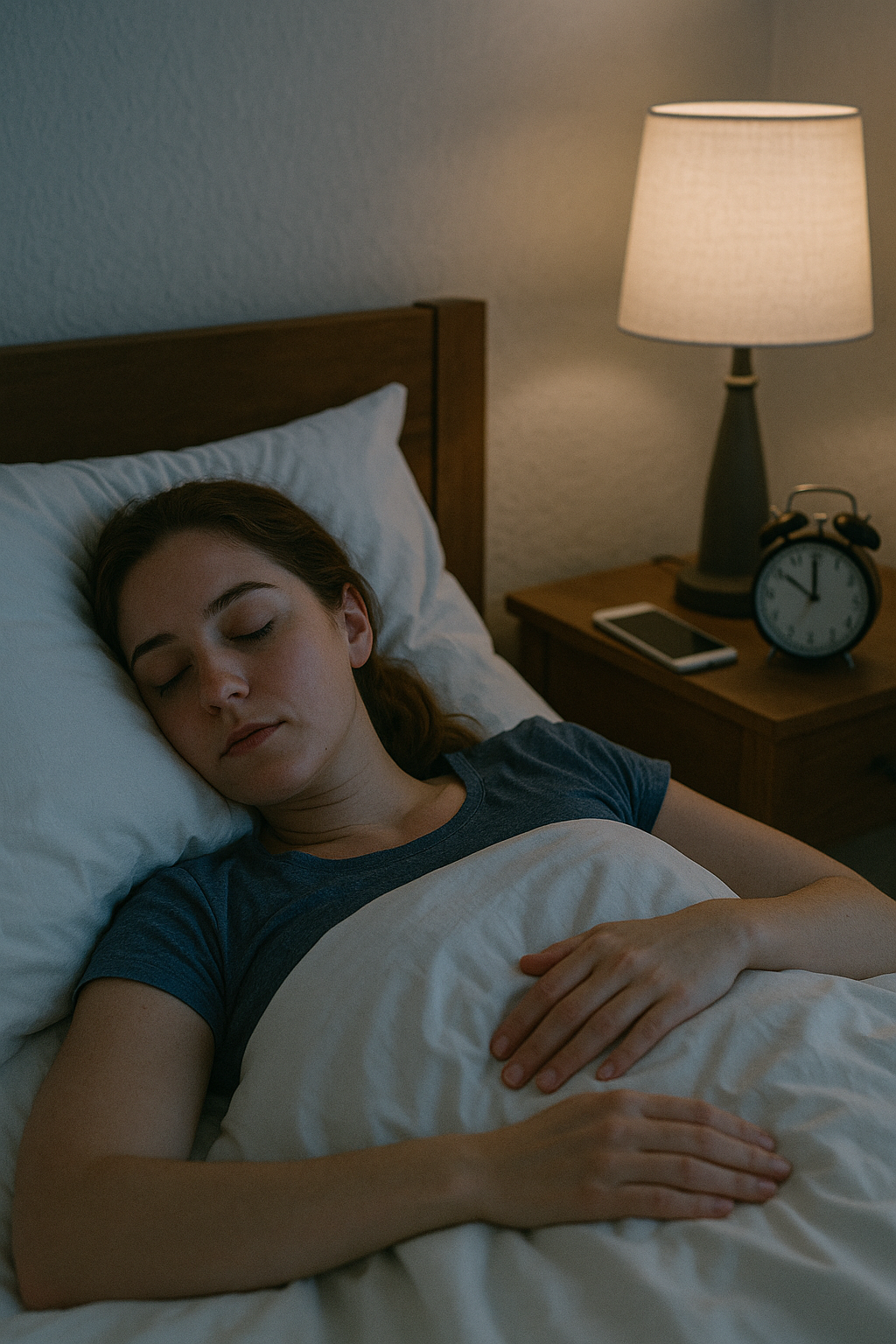Sleep is one of the pillars of health—but many people struggle to get enough restful sleep night after night. While medications may offer short-term relief, they aren’t always the best long-term solution. The good news is that natural changes to your environment and habits can make a big difference. Let’s explore how to improve your sleep quality without relying on pills.
1. Maintain a Consistent Sleep Schedule
Your body thrives on routine. Going to bed and waking up at the same time every day (yes, even on weekends!) helps regulate your internal clock. This makes it easier to fall asleep, stay asleep, and wake up feeling refreshed.
Tip: Try to get at least 7–9 hours of sleep per night, depending on your body’s needs.
2. Create a Relaxing Bedtime Routine
What you do in the hour before bed has a huge impact on how well you sleep. Choose calming activities to signal to your brain that it’s time to wind down:
- Read a physical book
- Take a warm shower or bath
- Listen to soothing music or nature sounds
- Do light stretching or breathing exercises
Avoid screens and stressful tasks during this time.
3. Limit Exposure to Blue Light
Phones, tablets, and TVs emit blue light, which interferes with melatonin production—the hormone that regulates sleep. To improve sleep:
- Stop using screens 1–2 hours before bed
- Use “night mode” or blue light filters on your devices
- Consider blue light blocking glasses if you must use screens
4. Keep Your Bedroom Cool, Dark, and Quiet
Your sleeping environment makes a big difference. Here’s how to optimize it:
- Temperature: 16–20°C (60–68°F) is ideal
- Darkness: Use blackout curtains or an eye mask
- Noise: Use a fan or white noise machine to block distractions
- Comfort: Invest in a quality mattress and pillows
Your bedroom should feel like a restful sanctuary.
5. Avoid Caffeine and Heavy Meals Before Bed
Caffeine can stay in your system for up to 6–8 hours, so avoid coffee, energy drinks, and chocolate in the afternoon and evening. Also, avoid large meals right before bedtime, as they can cause discomfort and disrupt sleep.
If you’re hungry late at night, choose something light and sleep-friendly like a banana or a handful of almonds.
6. Get Natural Light During the Day
Exposure to sunlight during the day helps regulate your body’s circadian rhythm. Try to get at least 30 minutes of natural light, preferably in the morning. Go for a walk, sit by a window, or work outdoors when possible.
7. Exercise Regularly—but Not Too Late
Physical activity helps reduce stress and supports better sleep. Aim for at least 30 minutes of moderate exercise most days of the week. Just try not to do intense workouts right before bedtime, as that may increase alertness instead.
8. Try Natural Relaxation Techniques
Mind-body practices are great for calming your nervous system:
- Deep breathing
- Progressive muscle relaxation
- Meditation
- Aromatherapy with lavender or chamomile
These techniques can help slow your thoughts and ease you into sleep more gently.
9. Keep a Sleep Journal
If you’re struggling with sleep, track your habits to identify patterns. Include:
- Bedtime and wake-up time
- How long it takes to fall asleep
- What you ate/drank
- Your mood or stress levels
This helps you spot triggers and make informed adjustments.
Sleep Naturally, Sleep Better
You don’t need to rely on pills to get a good night’s sleep. With consistent routines, a healthy environment, and some patience, you can train your body and mind to sleep more deeply and wake up more refreshed. The benefits will spill over into every area of your life—from energy and mood to productivity and overall well-being.
